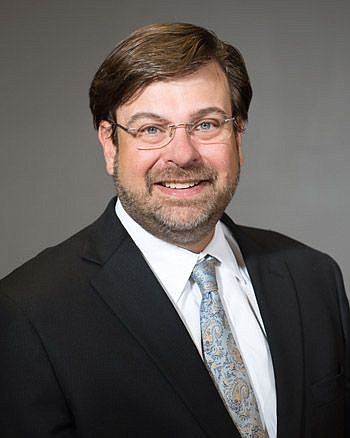
Technology is great, but it winds up playing into the underlying neurosis that infects most of the members of our profession.
Lawyers are neurotic people. We are constantly trying to pack more into a given day than the day can possibly hold, all while we work to manage and control too many thoughts running through our heads.
Sometimes those thoughts control us. I distinctly remember one staff meeting when a particular client’s name was raised. I bolted up the stairs to the file cabinet, worried about whether or not we had actually sent out a document in a case in which a deadline was looming. (Thankfully, we had.) Everyone else in the office laughed, because apparently I look pretty funny when I am scared witless.
I guess our neuroticism makes us good advocates for our clients — we do the worrying so they don’t have to.
Anyway, the last 20 years have brought a host of new technology that has enabled us to pack even more work into the same time.
Doing more in less time, though, adds to the anxiety inherent in the responsibility attached to each case we handle. While technology gives us the illusion that we can do more stuff, it actually decreases our opportunities to engage in quiet, critical thinking.
Early this morning, as I was wrapping up matters in my office before taking a few days’ vacation, an odd thought struck me: A lawyer in my position 30 years ago didn’t have to worry about how many emails he or she would be missing over the course of a few days, and would not have to deal with all the “immediate” crises that the electronic scourge has generated.
Email is probably the most destructive force known to modern man — it disturbs at all times of the day and night and intrudes when we are trying to do serious work. At the same time, our profession has evolved to the point that email has become the bulk of the work we have to do.
We need to come up with ideas for handling the stress caused by the technologically enhanced immediacy of our practice.
The other day I discussed my annoyance at the number of emails that I have to read in a day, and a colleague explained that he simply reads most of his emails in the bathroom. I don’t think that’s necessarily a good idea (and it has discouraged me from borrowing the cellphones of other lawyers). I do think some other solutions may help.
First, we need to find the time where we simply turn off the noise. People hire lawyers not because of our ability to handle administrative tasks, but because of our ability to think through problems and to provide meaningful advice.
A lot of good ideas come to me when I’m not directly involved with addressing a client’s case. Our minds work better when they are relaxed and when we are not focused on pushing out that next bit of work. We each need to come up with the solutions that permit us to get away from the mental clutter.
One solution is to simply calendar times to do work without phone calls, emails, and distractions. I have a hard time with this solution, since I figure that I can go play hooky whenever there’s an open spot on my calendar, but I am working on other constructive ways to take time away during the middle of the day.
We should also have time when we simply turn off the email. Now that the court system has made email mandatory, it has morphed from a communication convenience to the official and mandatory medium of notice for our profession. Admittedly, it’s hard to turn off the constant information flow, but we need to try to make an effort.
Another thing we could do is to find a constructive hobby or pastime. About five or six years ago, a good friend of mine looked at me and asked me, “What do you do for yourself?”
I didn’t have a real good answer for him, and he took advantage by forcing me to start playing golf. I now know that golf has the same addictive qualities of crack cocaine, without (I am told) an equivalent feeling of achievement.
Nevertheless, when I am out on the golf course, I rarely let anyone interrupt me, and I can clear my mind and relax between periodic episodes of frustration.
I certainly don’t know all the answers to reducing the influence of modern day stressors, but I think we each need to examine how we can commit ourselves to spending more time analyzing and less time responding to the multitude of immediate demands placed on us.
Tad Delegal is a member of The Jacksonville Bar Board of Governors and a Gator hoping that life looks more like last year’s basketball season than last year’s football season.